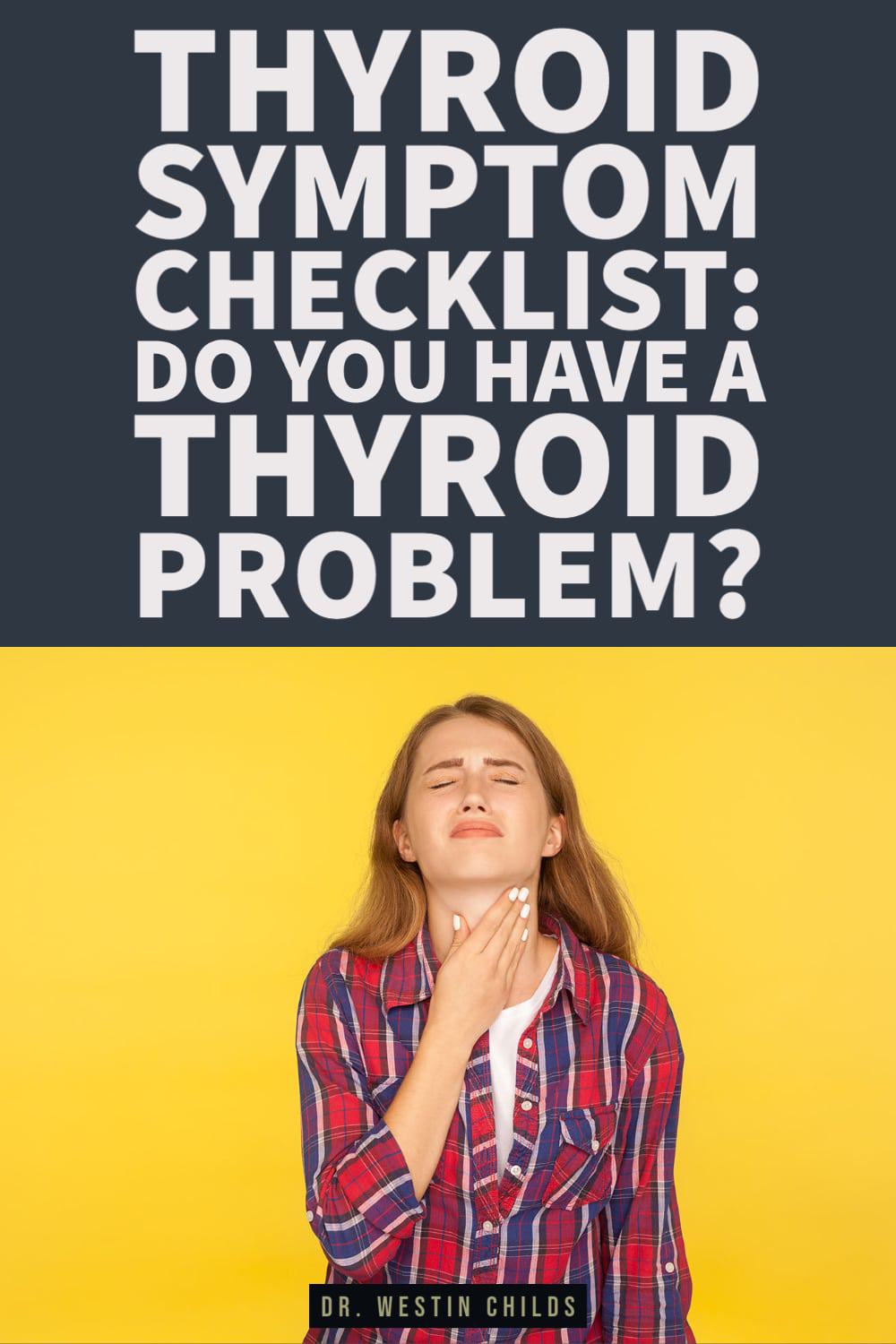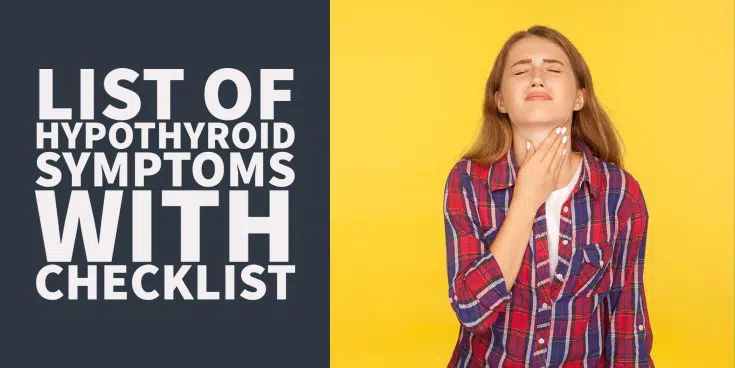Do you have all of the symptoms of hypothyroidism and yet you are told that your lab tests are “normal”?
If so then this blog post should help you understand why this can happen and more importantly what you should do about it.
Due to various reasons (that we will discuss below), your doctor may not be ordering the right tests or evaluating your symptoms in the right context.
Because of this, it’s up to you to have a greater understanding than the average person so that you can be an advocate for yourself.
This post will teach you what symptoms to look out for, what tests you need to ask your doctor for, and how to interpret those lab tests.
Let’s jump in:
DOWNLOAD FREE RESOURCES
Foods to Avoid if you Have Thyroid Problems:
I’ve found that these 10 foods cause the most problems for thyroid patients. Learn which foods you should avoid if you have thyroid disease of any type.
The Complete List of Thyroid Lab tests:
The list includes optimal ranges, normal ranges, and the complete list of tests you need to diagnose and manage thyroid disease correctly!
Are You Hypothyroid?
Does this scenario sound familiar?
You’ve recently been diagnosed with Hashimoto’s thyroiditis or you’ve been told you have antibodies to your thyroid gland…
You’ve recently had a baby…
You recently went through menopause…
You’ve recently gone through some stressful events…
And now you’re experiencing such symptoms as hair loss, unexplained weight gain, cold hands/extremities, dry skin, and constipation.
So you go to the doctor and have him/her run some tests, only to be told that your lab tests are completely “normal”.
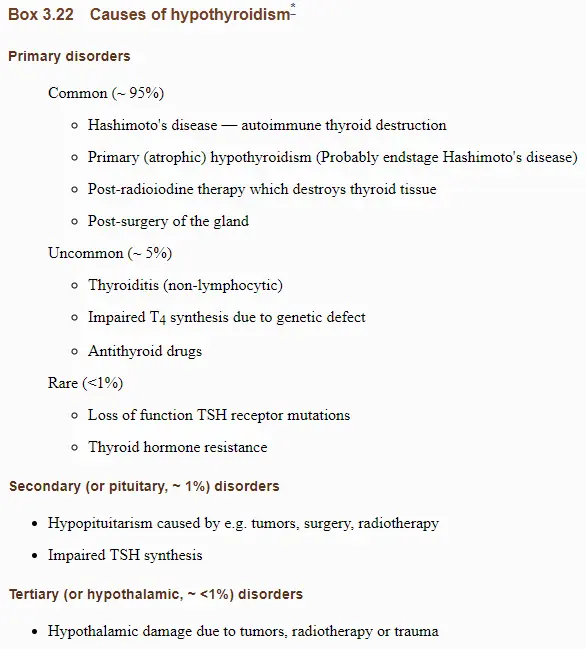
How can your labs be normal when you obviously feel so bad?
You know something is wrong and you know something has changed but everything shows up as “normal”.
Instead of a solution you are offered anti-depressants or told that this is just normal and part of “getting older”.
So you go home defeated, exhausted, and depressed thinking you have to deal with feeling this way forever.
If this has happened to you keep reading because you aren’t crazy and you aren’t alone.
These symptoms, along with many others, may be the first sign that you have a condition known as hypothyroidism (1) or low thyroid hormone in your body.
Your thyroid either directly controls or is at least involved in all major processes in your body.
This control helps regulate your metabolism, your mood, your sex hormones, and your weight.
Small changes to this very intricate system may result in big symptoms.
So what’s the problem?
The problem is that most doctors look solely at a blood test known as the TSH.
If your TSH is “normal” then your thyroid is considered “fine”.
But TSH is NOT the most (or only) accurate way to assess thyroid function.
This leads to a high number of patients who are either misdiagnosed or mismanaged.
Newer studies have come out that increase our understanding of the TSH which suggests that tighter reference ranges may be in order (2) and even that the TSH may not be the best marker for assessing thyroid function (3).
More on that later though…
For now, let’s discuss the symptoms of hypothyroidism, how to know if you need further testing, and how to determine if your thyroid is the root cause of your symptoms.
List of Hypothyroidism Symptoms with Checklist
How to use this list:
- If you have 5 or more symptoms you are likely to have hypothyroidism
- If you have 6-10 symptoms you are very likely to have hypothyroidism
- If you have > 10 symptoms you have Hypothyroidism it just hasn’t been diagnosed yet
Regardless of how many symptoms you have from the list, you should be evaluated with a complete thyroid blood test (more information below).
Your symptoms may indicate you have a thyroid problem but you should always confirm with blood and serum analysis.
Top 10 Most Common Symptoms of Hypothyroidism
This list of 10 symptoms includes the most common symptoms among hypothyroid patients.
It’s important to realize that these symptoms may be associated with other disease states or may be non-specific by themselves.
For this reason, you will need to confirm the presence of subclinical hypothyroidism or hypothyroidism with lab testing.
1. Fatigue after sleeping 8-10 hours at night or needing to take a nap daily
2. Weight gain or the inability to lose weight
3. Mood issues such as mood swings, anxiety, or depression
4. Hormone imbalances such as PMS, irregular periods, infertility, and low sex drive
5. Muscle pain, joint pain, carpal tunnel syndrome, or tendonitis
6. Cold hands and feet, feeling cold when others are not, or having a body temperature consistently below 98.5 degrees
7. Dry or cracking skin, brittle nails, and excessive hair loss (up to 54% of patients with hypothyroidism report dry skin as a presenting symptom)
8. Constipation
9. Mind issues such as brain fog, poor concentration, or poor memory
10. Neck swelling, snoring, or hoarse voice
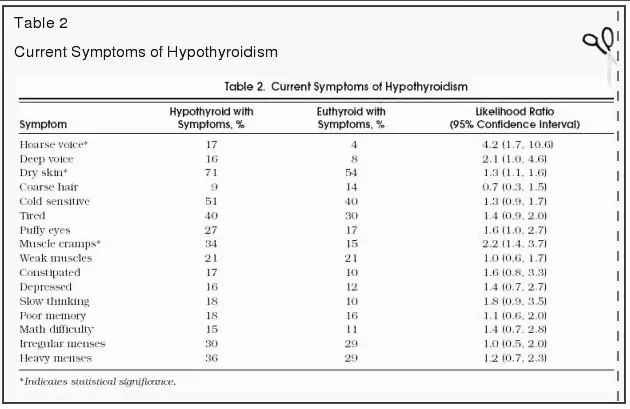
Signs and Symptoms of Hypothyroidism
You may have noticed that the range of symptoms related to your thyroid is quite large.
The reason hypothyroid symptoms can be so diverse is that every cell in your body has a thyroid receptor (4).
So the symptoms that you present with will depend on which cells in your body are NOT getting enough thyroid hormone.
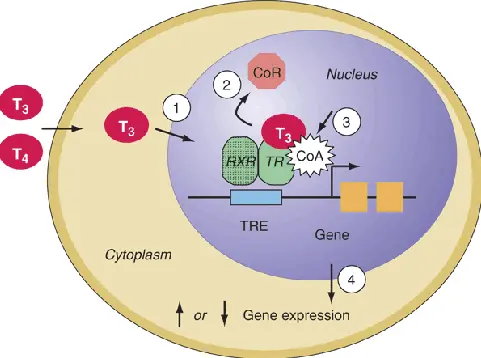
Not enough thyroid hormone in your brain tissue? You may present with brain fog or depression.
Not enough thyroid hormone in your skeletal muscles? You may present with chronic pain or tender points (or the symptoms of fibromyalgia).
Not enough thyroid hormone in your mitochondria? You may present with weight gain and low energy.
Not enough thyroid hormone in your gastrointestinal tract? You may present with constipation and GI-related issues.
The important thing to understand here is that each person may present with slightly different symptoms.
Why?
Because it depends on which tissues in your body aren’t getting enough thyroid hormone and this can vary from person to person.
Some of this variation may be due to the different demands that certain tissues have for thyroid hormone and your individual ability to convert (or not) T4 to T3.
It has been shown in studies (5) that age, gender, existing diseases and certain medications can all impact thyroid hormone conversion in the body.
With this in mind, you can find a more complete list of hypothyroid symptoms below:
- Fatigue
- Lethargy
- Low endurance
- Slow speech
- Slow thinking
- Poor memory
- Poor concentration
- Depression
- Nervousness
- Anxiety
- Worrying
- Easy emotional upset
- Obsessive thinking
- Low motivation
- Dizziness
- Sensation of cold
- Cold skin
- Decreased sweating
- Heat intolerance
- Non-restful sleep
- Insomnia
- Thick tongue
- Swelling of face
- Sparse eyebrows
- Low basal activity level
- Low basal temperature
- Slow resting pulse rate
- Long-normal intervals on ECG
- Swelling of eyelids
- Dry Skin
- Dry mucous membranes
- Constipation
- Weight gain unexplainably
- Paleness of lips
- Shortness of breath
- Swelling
- Hoarseness
- Loss of appetite
- Prolonged menstrual bleeding
- Heavy menstrual bleeding
- Painful menstruation
- Low sex drive
- Impotence
- Hearing loss
- Rapid heart rate
- Pounding heartbeat
- Slow pulse rate
- Pain in the front of the chest
- Poor vision
- Weight loss
- Wasting of tongue
- Indistinct or faint heart tones
- Low QRS voltage on ECG
- Emotional instability
- Choking sensation
- Fineness of hair
- Hair loss
- Blueness of skin
- Dry, thick, scaling skin
- Dry, coarse, brittle hair
- Paleness of skin
- Puffy skin
- Puffy face or eyelids
- Swelling of ankles
- Coarse skin
- Brittle or thin nails
- Dry ridges down nails
- Difficulty in swallowing
- Weakness
- Vague body aches and pains
- Muscle pain
- Joint pain
- Numbness or tingling
- Protrusion of one or both eyeballs
- Brain fog
- Cardiac enlargement on x-ray
- Fluid around heart
Believe it or not, there are even more symptoms, but at this point, it’s usually not worth going over them because if you have hypothyroidism the chance of you having 10+ symptoms on that list is VERY high.
The presence of all of these symptoms is not necessary for a diagnosis of hypothyroidism.
It’s also worth noting that the majority of these symptoms should go away as long as you replace the deficiency of thyroid hormone in your body!
So what should you do if you are experiencing these symptoms?
The “Complete Thyroid Lab Panel” Your Next Step
Most cases of hypothyroidism get missed because of two very important reasons:
1. Lack of complete thyroid lab testing
2. Inability to interpret thyroid lab findings based on newer research
Traditionally doctors will order only the TSH and free T4 levels in the serum.
If either of these lab tests falls within the “normal” reference range then the patient is considered to be normal.
Newer studies (6) have suggested that our reference range may require tighter parameters due to several factors:
Studies that look at the African-American population find that the TSH is actually closer to 1.0.
The African American population tends to have a reduced risk of developing a thyroid condition known as Hashimoto’s thyroiditis, the presence of which may skew thyroid lab tests and may have confounded previous studies that provided us with the current reference range of TSH.
In addition, newer laboratory guidelines from the National Academy of Clinical Biochemistry indicate that more than 95% of normal individuals have TSH levels below 2.5.
This is further complicated by the fact that studies have shown that patients who are treated with LT4 (7) (like levothyroxine and Synthroid) to a normal TSH, still have low free T3 when compared to patients with normal thyroid function.
This suggests that reliance upon standard thyroid lab tests such as TSH and free T4 levels may not be sufficient for adequately assessing thyroid function in every person.
What does this mean for you?
It means that you may need a more comprehensive approach to thyroid management which begins with a comprehensive thyroid lab panel.
Comprehensive lab testing will allow you to assess pituitary function (by evaluating your TSH), thyroid conversion status (by assessing T3), and thyroid cellular action (by assessing sex hormone-binding globulin).
This will obviously give you much more information than simply testing the T4 and TSH.
You can find the list of recommended lab tests below:
(The optimal reference ranges are listed to the right of the lab tests)
- TSH – Studies suggest a range of greater than 2.5 may be indicative of hypothyroidism. I find that healthy individuals have a TSH closer to 1.0 and prefer this as an “optimal” range for TSH.
- Free T4 – Preferably the upper 1/2 of the reference range if not taking thyroid medication (though note this will number may go down if you are on T3 formulations like liothyronine, in which case you will want to look at the free T3 levels).
- Free T3 – Preferably the upper 1/2 of the reference range if not taking thyroid medication.
- Reverse T3 – Should be < 15, higher levels of reverse T3 in the presence of low T3 may indicate thyroid conversion problems.
- Thyroglobulin antibodies – Should be as close to 0 as possible (the exact value depends on the laboratory you are using).
- Thyroid peroxidase antibodies – Should be as close to 0 as possible.
- Sex hormone-binding globulin – In women, this should be in the 70-80 range (note: the SHBG can only be used if you are not taking birth control medications or estrogen therapy), in men, it should be around 20-30. Your SHBG should increase with thyroid therapy and can be monitored as you alter your dose.
- Free T3/Reverse T3 ratio – Calculate this number by dividing free T3 by Reverse T3, your calculation should be > 0.20 (if < 0.20 this may indicate that you have excessive reverse T3 relative to free T3 and may have a conversion problem or low T3 syndrome). If you are using pg/ml by ng/dl then your value should be > 0.20 if you are using ng/dl then the value should be > 0.02.
When interpreting thyroid hormone lab tests (or any other hormones in your body) you want to concern yourself with “optimal ranges” not the standard “reference range” that the lab creates.
The reference range that the lab creates is based on the average for the population.
When you consider that up to 70% of the population is overweight and that the average person over the age of 50 is on 5 different medications, it’s easy to determine that this is NOT the population that you want to be compared to.
You want to compare your numbers to actually HEALTHY individuals, and the numbers I’ve outlined above come close to that population.
Your doctor will likely try to compare you against the standard reference range so you may need to bring this list of optimal ranges to them.
When it comes to your thyroid there is a large difference between being “normal” and being “optimal” especially when we are talking about very small changes to hormone concentration in the serum.
Lastly, and perhaps more importantly, is that you are more than just the numbers on a piece of paper.
All doctors know that while lab tests are helpful in diagnosis, they aren’t the end-all-be-all either.
Lab tests should be used in conjunction with your existing symptoms to help give a clear picture of what is actually happening inside your body.
Why your Doctor says your Lab Tests are Normal when they aren’t
There are a couple of things you have to understand about lab testing…
We (both doctors and patients) like to think that they are 100% perfect but that is far from the truth.
No test is 100% accurate and thyroid lab tests are no exception.
One of the ways that lab testing falls short is in our ability to only test what is in your bloodstream.
We aren’t actually interested in the blood levels of certain hormones in the body, believe it or not.
Why?
Because hormones (and most of the markers we measure in your blood) don’t have action in your bloodstream.
Your bloodstream is a highway to get to other tissues like your heart, brain, skeletal muscles, etc.
With this in mind, we are actually much more concerned about whether or not thyroid hormone is actually getting to your tissues.
We just make the assumption that if your blood levels are “high” enough they will get to their target destination.
But this isn’t always a fair or safe assumption to make, for a variety of reasons…
What if there is a blockade at the cellular level and thyroid hormone can’t leave the bloodstream to get into the cells?
What if you lack the cellular enzymes required for thyroid hormone activation in the cells?
This process actually happens and the condition is known as thyroid resistance or tissue-level hypothyroidism (8).
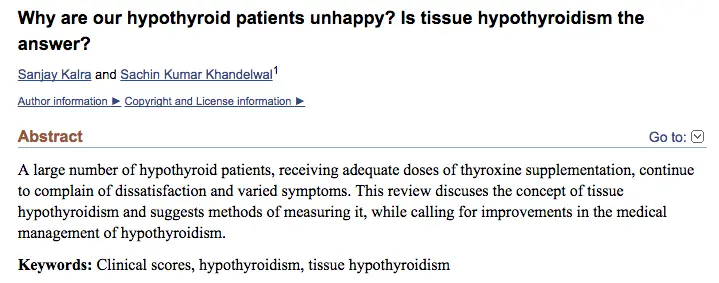
You’d never know something like this was happening unless you checked your reverse T3 levels and peripheral conversion status.

Other factors also influence lab tests such as the presence of autoimmune thyroiditis or Hashimoto’s thyroiditis.
It is estimated that up to 90% of hypothyroidism in the US is caused by this autoimmune condition.
The problem is that patients with this condition present with slightly suboptimal thyroid lab tests and don’t generally develop overt hypothyroidism for years.
This leads to symptomatic patients that go undiagnosed for years.
You can find a list of other conditions that alter the effectiveness of standard thyroid lab tests in this post.
What to do if you are on Medication but still have Hypothyroid Symptoms
Let’s say you’re reading this and you’ve already been diagnosed with hypothyroidism and you’re currently on thyroid medication with “normal” labs but still exhibiting symptoms.
What then?
Are you just destined to feel this way forever?
No way.
It’s actually not that uncommon for patients to still have symptoms of hypothyroidism on thyroid medication for a variety of reasons:
1. They are being treated with Levothyroxine (AKA T4 medication only)
2. They are being treated based on their TSH.
3. They have nutrient deficiencies that haven’t been addressed.
4. They haven’t focused on T4 to T3 conversion or Reverse T3 levels.
We can address each of these problems 1 by 1…
#1. Treatment with T4 only thyroid medication and/or treatment based on your TSH
The truth is that MOST patients do much better when they have some T3 thyroid hormone added to their thyroid hormone replacement.
Medications that include T3 thyroid hormone:
- Cytomel, liothyronine, or sustained-release T3 – This is pure T3 medication and is THE active thyroid hormone. Adding this to your current regimen may improve your symptoms drastically.
- Natural desiccated thyroid hormone – This medication contains T4 and T3 in addition to other thyroid hormones and may also improve your symptoms significantly.
What is the “best” dose for each of these?
Unfortunately, it’s impossible to say without trial and error. Each patient will need an individualized dose and may require a different amount of T4 and/or T3 to “feel optimal”.
Having said that you can look at some of these average doses to help you:
- Liothyronine – As little as 5-10mcg per day can make a large difference but up to 20mcg per day or more may be necessary for some individuals.
- Natural desiccated thyroid – 1-3 grains per day and everything in between.
- A combination of NDT + Liothyronine – 1-2 grains + 5-10mcg of Liothyronine tends to work well for most patients.
It’s also worth pointing out that MANY of you have more than just thyroid problems going on in your body.
If these problems are NOT addressed, it doesn’t really matter how much thyroid hormone you get – you will NOT feel optimal.
That includes other hormones, nutrients, and the basic 4 foundational pillars of health:
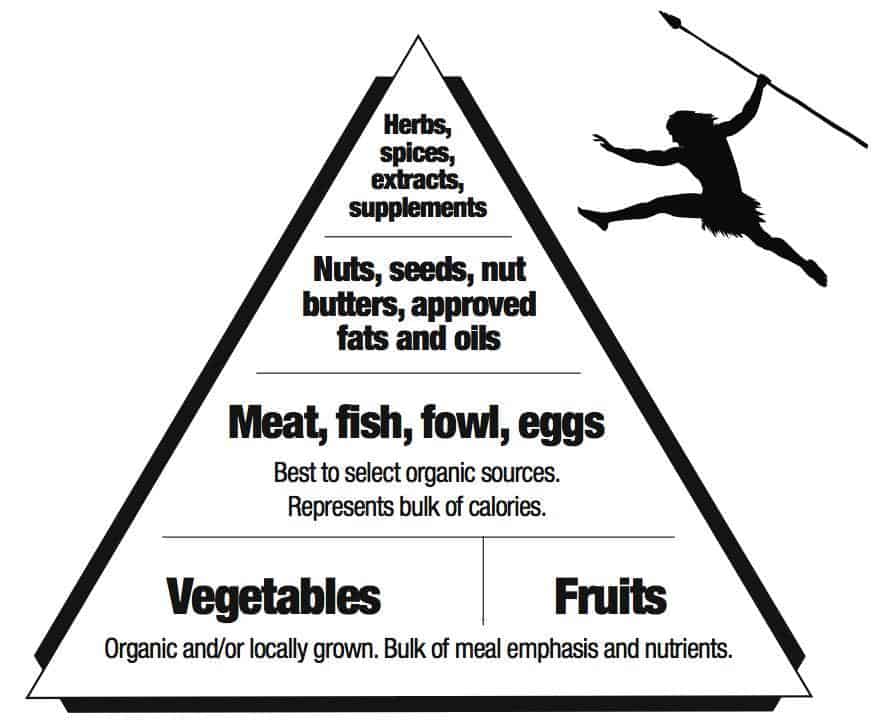
1. Stress coping techniques – These would include things like yoga, meditation, or spiritual prayer. You may also consider adrenal adaptogens or adrenal glandulars to help your body tolerate stress and boost energy levels.
2. Proper Whole Food Diet – See a list of diets that work for Hypothyroidism and Hashimoto’s here and here. If used correctly these diets can help you increase energy levels and help with weight loss.
3. Exercise and movement routine – This includes a combination of low-intensity exercise (like walking) daily in addition to high-intensity exercise once your thyroid function has improved.
4. High-quality restful sleep – You need to be getting 8 hours of sleep per night at least in order for your hormones to function optimally
#2. Addressing Nutrient Deficiencies
Another way to improve thyroid function is by addressing existing nutrient deficiencies in your body.
Certain nutrients (including minerals) are required and involved in enzymatic processes in your body.
Iron, for instance, is involved in cellular thyroid function.
B12 is another nutrient that up to 50% of thyroid patients are deficient in (9).
Low B12 will lead to low energy production and fatigue.
Deficiencies in several basic nutrients may, therefore, reduce thyroid function.
The good news is that you can replace existing nutrients quite easily by taking certain supplements.
You can learn about all of the nutrients involved in thyroid function and how to replace them appropriately in this post.
#3. Focusing on T4 to T3 Conversion
Lastly, another way that you can improve thyroid function is by taking steps to increase your T4 to T3 conversion.
Increasing T4 to T3 conversion will necessarily reduce reverse T3 levels and make more effective your current dose of thyroid hormone.
This is a great thing considering that most patients take T4-only medications like Synthroid or levothyroxine and the conversion of T4 to T3 is required before these medications work in your body.
Increasing T4 to T3 conversion can be accomplished through a few easy steps (for more elaboration please see this post):
- Take supplements designed to improve T4 to T3 conversion like zinc, selenium, guggul extract, and rosemary.
- Take steps to reduce systemic inflammation as well as gut inflammation (20% of T4 is converted in the gut)
- Take high-quality probiotics to reduce gut inflammation and increase nutrient absorption.
What if your Doctor Just Doesn’t get it
Guys:
Life is too short to waste your precious time and energy on a doctor who isn’t willing to work with you.
If you’re meeting resistance from your doctor it may be time to seek out a second opinion.
Your chances of “educating” your doctor on proper thyroid function are VERY slim.
Your best bet is to look for a doctor who specializes in thyroid care with an integrative or personalized approach.
Alternatively, you can also call local pharmacies and ask for a list of doctors that doctor prescribe liothyronine and natural desiccated thyroid hormone, again if the answer is “Yes” you are onto something.
You can also look for reviews online or from other patients.
Whatever you do make sure you find a doctor who can prescribe medication.
Many doctors who practice functional medicine may be more willing to prescribe the medications I listed above, but you still need to do your research.
Helpful Tips and Tricks for treating your thyroid:
Trouble losing weight? Check out this link.
Want to increase your thyroid hormone naturally? Check out this link.
Want to know the best supplements for your thyroid health? Check out this link.
Want to see case studies of other patients? Check out this link.
Want to know if Levothyroxine or Synthroid is the right medication for you? Check out this link.
I want to hear from you!
Do you have the symptoms listed above?
If so, what have you done to help them?
Have you tried liothyronine or NDT?
Leave a comment below!
Scientific References
#1. https://www.ncbi.nlm.nih.gov/pmc/articles/PMC6619426/
#2. https://www.ncbi.nlm.nih.gov/pubmed/16148345
#3. https://www.ncbi.nlm.nih.gov/pubmed/26700485
#4. https://www.ncbi.nlm.nih.gov/pmc/articles/PMC4578869/
#5. https://www.ncbi.nlm.nih.gov/pmc/articles/PMC4557078/
#6. https://www.ncbi.nlm.nih.gov/pubmed/16148345
#7. https://www.ncbi.nlm.nih.gov/pubmed/27700539
#8. http://www.ncbi.nlm.nih.gov/pmc/articles/PMC3169863/
#9. https://www.ncbi.nlm.nih.gov/pubmed/18655403
